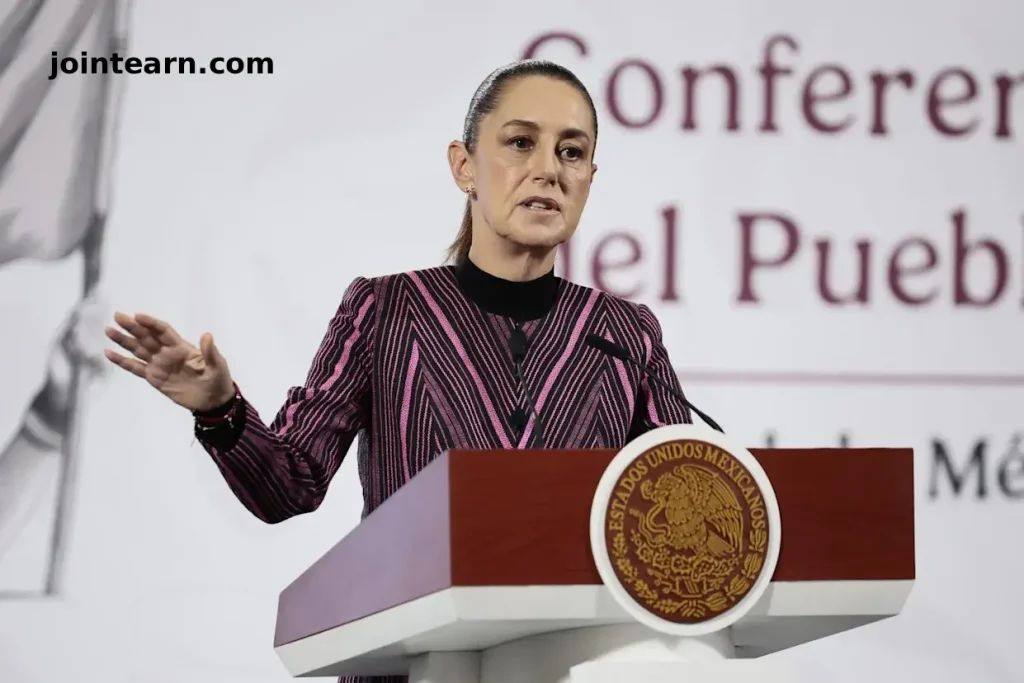
The shocking public groping of Mexican President Claudia Sheinbaum has sparked urgent government action and reignited public debate on how to address the widespread problem of sexual abuse in Mexico. The incident, which drew national attention, has prompted authorities to implement a comprehensive plan to prevent violence against women and ensure accountability for offenders.
Presidential Response to the Assault
Following the incident, Citlalli Hernández, Mexico’s Secretary for Women, unveiled a presidential plan to combat sexual abuse. The strategy focuses on multiple key initiatives, including:
- Ensuring prison sentences for sexual abuse across all 32 states in Mexico.
- Encouraging victims to report abuse and harassment.
- Training prosecutors, law enforcement officials, and government workers to handle sexual abuse cases sensitively and effectively.
- Launching public awareness campaigns in workplaces, schools, public transport, and other public spaces to prevent violence against women.
Hernández emphasized the government’s commitment, stating:
“We want to tell all Mexican women, girls, young women, and women in general that you are not alone, that when you experience any type of violence, it is important to report it. Know that today there is a president who protects you.”
The Incident That Sparked National Outrage
The plan comes after a public groping incident in Mexico City, in which a seemingly intoxicated man attempted to kiss President Sheinbaum and touched her inappropriately while she was walking down a street. The attack was captured on video, provoking widespread outrage and highlighting the pervasive risk of sexual violence—even for prominent public figures.
The incident has put a spotlight on the broader crisis of gender-based violence in Mexico, with national statistics showing that seven out of 10 women and girls aged 15 and above have experienced at least one form of violence, including sexual or psychological abuse.
National Statistics on Violence Against Women
The scale of the problem is alarming:
- In 2025 alone, 25,000 complaints of sexual harassment have been reported nationwide.
- On average, 10 women are murdered every day in Mexico.
- More than 500 women were killed due to gender-based crimes (femicides) in the first six months of this year.
Congresswoman Rocio Abreu from President Sheinbaum’s Morena party said the assault reflects the broader reality for Mexican women:
“The president is just another one of us who have experienced harassment, political violence, physical violence, sexual violence, economic violence. None of us are exempt.”
Legal Reforms and Legislative Measures
A central component of the plan is ensuring that sexual assault is recognized as a criminal offense in all 32 states, aligning local laws with federal legislation, which imposes 6–10 years in prison for violent sexual abuse against vulnerable individuals or minors.
Senator Martha Lucía Mícher stressed the importance of comprehensive reforms:
“You have to classify the crime as a serious offense. You also work with men. You also empower women. You also conduct awareness campaigns. You also train public officials, police officers, government officials and judges. And you also do great work with the community.”
Challenges and Criticism from Activists
Despite the plan, some activists and young women remain skeptical about the effectiveness of relying heavily on criminal law enforcement as the primary solution.
- Itzayana Brito, a 20-year-old nursing student, criticized the government’s efforts: “It’s been too many years of fighting… there have been small changes, but there’s never been a concrete difference.”
- Estefania Vela, a legal expert and feminist leader, noted: “It’s an easy response to change criminal codes, but there’s little change in real life.”
- Oriana López, a feminist activist, emphasized the need for cultural and societal shifts: “There has to be cultural change in masculinity… so that men are not abusive.”
Moving Forward: A Multi-Faceted Approach
Experts and activists agree that meaningful progress requires a holistic approach:
- Legislative reform to strengthen penalties for offenders.
- Education campaigns targeting toxic masculinity and societal attitudes.
- Community engagement to support victims and empower women.
- Training for law enforcement, judiciary, and government officials to enforce laws effectively.
The government’s plan represents a significant step toward addressing a deeply rooted issue in Mexico, but its success will depend on sustained efforts to combine legal action with cultural transformation.


Leave a Reply